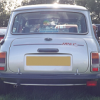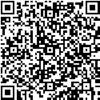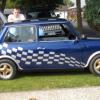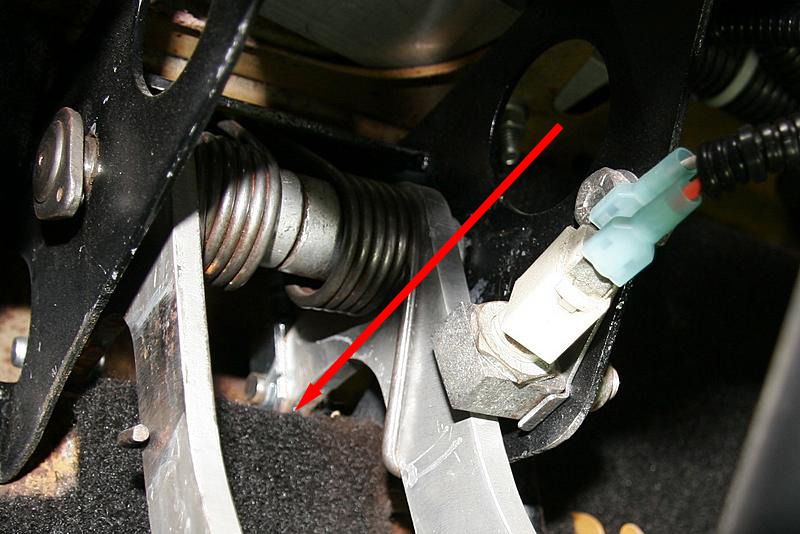Edited by Vicky1000, 12 March 2015 - 06:11 PM.

Sudden Brake Failure Help!
#1

Posted 12 March 2015 - 06:09 PM
#2

Posted 12 March 2015 - 06:16 PM
Do you have fluid in the brake master cylinder? if there is then that would rule out a leak somewhere. When you say the brakes failed, in what way? the pedal went soft, the brakes don't slow the car or they are jammed on?
Also though none of witch would account for the smoke under the bonnet and lack of power. Which I seam to think might be more clutch related if these no drive/screeching. As I've had that before when the oil seal pops, chucks engine oil over the clutch leaving you at the side of the road with no drive/screeching/slipping clutch.
Edited by 1984mini25, 12 March 2015 - 06:16 PM.
#3

Posted 12 March 2015 - 06:16 PM
First of all.... is what was down the front of the engine oil, or was it brake fluid ?
Is the mini fitted with a Servo ?
Is there brake fluid in the master cylinder ?
#4

Posted 12 March 2015 - 06:17 PM
PS... Manual or Automatic
#5

Posted 12 March 2015 - 06:43 PM
#6

Posted 12 March 2015 - 06:46 PM
IS IT SERVO ? GW ASKED!
#7

Posted 12 March 2015 - 06:56 PM
#8

Posted 12 March 2015 - 07:13 PM
Sounds like the Master Cylinder has swollen seals and / or wasn't fully returning. As a result, the pressure in the Brake Hydraulic Circuit gradually builds up and the Brakes come on. Continuing to drive only heats them to the pint where they lock solid, then with the residue heat in the Brakes, even after stopping, the Pressure further increases to the point where something lets go.
Well, that's what actually happened to me only a few weeks back.
#9

Posted 12 March 2015 - 08:13 PM
Sounds like the Master Cylinder has swollen seals and / or wasn't fully returning. As a result, the pressure in the Brake Hydraulic Circuit gradually builds up and the Brakes come on. Continuing to drive only heats them to the pint where they lock solid, then with the residue heat in the Brakes, even after stopping, the Pressure further increases to the point where something lets go.
Well, that's what actually happened to me only a few weeks back.
You've pretty much explained what happened last night! Thanks so much for that it's really helped
#10

Posted 12 March 2015 - 09:12 PM
Sounds like the Master Cylinder has swollen seals and / or wasn't fully returning. As a result, the pressure in the Brake Hydraulic Circuit gradually builds up and the Brakes come on. Continuing to drive only heats them to the pint where they lock solid, then with the residue heat in the Brakes, even after stopping, the Pressure further increases to the point where something lets go.
Well, that's what actually happened to me only a few weeks back.
You've pretty much explained what happened last night! Thanks so much for that it's really helped
Hope that helps you narrow it down.
Yeah, it happened to me in my wife's Moke. After limping home very slowly with nothing more than the handbrake, i was sure to let her know she had to get her Brakes fixed ![]()
#11

Posted 13 March 2015 - 10:36 PM
#12

Posted 14 March 2015 - 12:59 AM
If original it'll be on drums, so a blown wheel cylinder could account for the oily stuff, actually brake fluid thrown from the wheel.
#13

Posted 14 March 2015 - 02:08 AM
Yeah I ended up getting my boyfriend to limp it home on handbrake as only driving for a year I think I would have really struggled. I've managed to get a new master cylinder so now know I can't hopefully get it back on road Sunday :)
Just make sure when fitting up the Master Cylinder, that the push rod returns completely. If it doesn't have a servo, the brake pedal should 'hang off' the push rod of the Master Cylinder. If, with foot off the pedal, the part of the pedal that the push rod attached too, is resting on the body at all, then the same thing could happen again (hope that makes sence). I'm guessing here that since you had it changed just recently, this may be why it did this.
This (hopefully) shows where you need to check. The pedal will come close to the body but musn't touch it. It only needs about 1 - 2 mm clearance 9as a minimum
Standard shims are available under P/N NAM1718, though I'm not sure who stocks them.
Likewise, if your car has a direct acting booster, then be sure that the Piston in the Master Cylinder is fully retracted (relaxed) when it is fitted up.
#14

Posted 16 March 2015 - 04:55 PM
If original it'll be on drums, so a blown wheel cylinder could account for the oily stuff, actually brake fluid thrown from the wheel.
It's not from drums as have checked them, the oil is actually a separate issue turns out my oil pressure gauge pipe has been leaking oil from engine side .
#15

Posted 16 March 2015 - 04:56 PM
Cheers we managed to fit the new master cylinder okay but the pipe that was supplied with it was damaged so had break fluid leaking so now had to wait to get that sorted haha not having much luck lately but hopefully it should be back working this evening :)
Yeah I ended up getting my boyfriend to limp it home on handbrake as only driving for a year I think I would have really struggled. I've managed to get a new master cylinder so now know I can't hopefully get it back on road Sunday :)
Just make sure when fitting up the Master Cylinder, that the push rod returns completely. If it doesn't have a servo, the brake pedal should 'hang off' the push rod of the Master Cylinder. If, with foot off the pedal, the part of the pedal that the push rod attached too, is resting on the body at all, then the same thing could happen again (hope that makes sence). I'm guessing here that since you had it changed just recently, this may be why it did this.
This (hopefully) shows where you need to check. The pedal will come close to the body but musn't touch it. It only needs about 1 - 2 mm clearance 9as a minimum
Standard shims are available under P/N NAM1718, though I'm not sure who stocks them.
Likewise, if your car has a direct acting booster, then be sure that the Piston in the Master Cylinder is fully retracted (relaxed) when it is fitted up.
1 user(s) are reading this topic
0 members, 1 guests, 0 anonymous users



















